You might think with the dark evenings, dodgy weather and nippy temperatures, the last thing you should do is go topless.
But, trust me, it’s very invigorating to get the roof down, take to the road and feel the fresh wind through your hair.
Admittedly, a warm jacket and woolly scarf are advisable to keep out the chill and a toorie bunnet counters brain freeze and helps keep the locks in place.
It’s best when there’s a clear blue sky but it’s not essential and there’s something special about a night drive with a dramatic view of the stars and moon overhead. Even rain shouldn’t be a deterrent as you’ll find that if you keep up the speed, it’ll pass over your head, the only issue being if you get held up in traffic or at a red light.
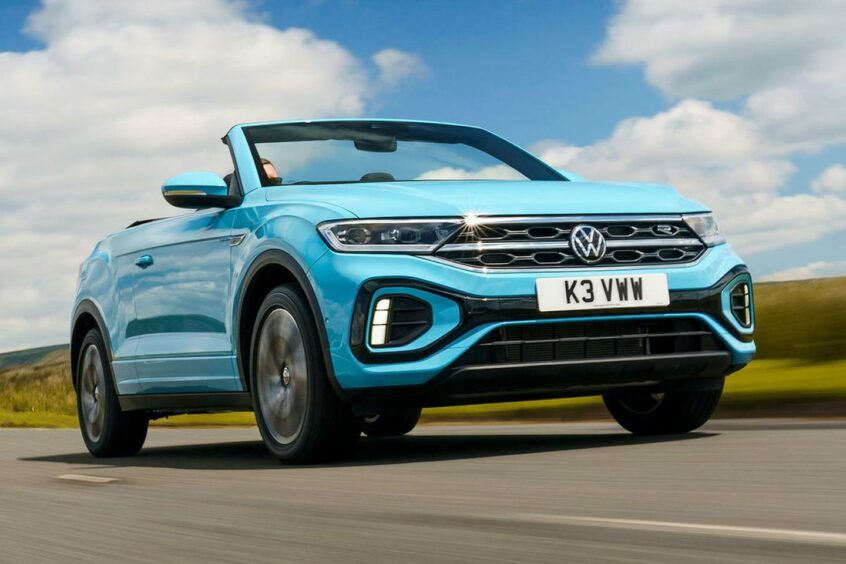
Then there’s the added delight, especially in the countryside, of nature’s smells – some more challenging than others – which you just don’t get if you’re enclosed in a standard car with the windows closed.
The joys of open-top motoring came back to me as I took the wheel of one of the more unusual versions of the breed, the cabrio derivative of VW’s T-Roc compact SUV.
At first sight, it doesn’t really make sense – a bit like the ill-fated convertible version of Land Rover’s Evoque – combining two distinct types of vehicle and coming up with something which disappoints in each segment.
A car that stands out from the crowd
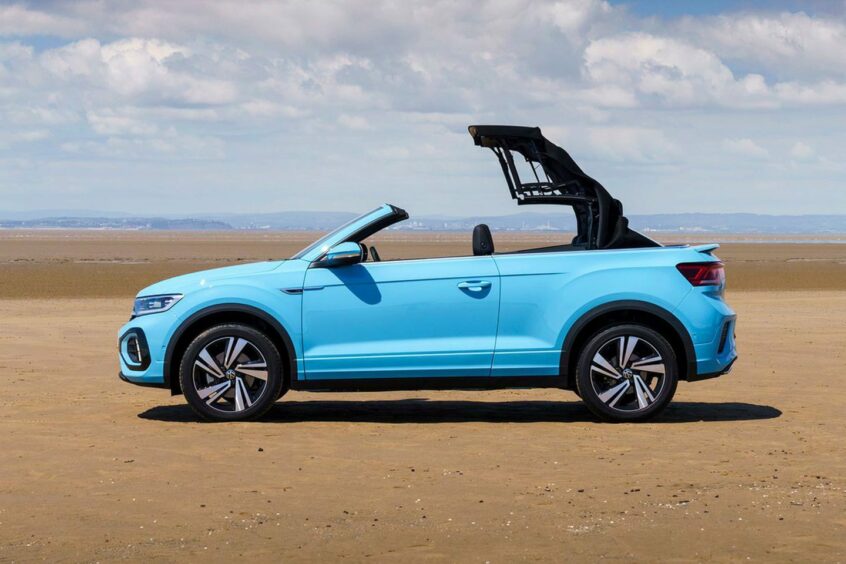
But if you want something that’s different from the crowd, then this car will appeal.
VW have brought more than 70 years of experience of creating some celebrated drop-tops to literally breathe fresh air into the SUV market.
Even VW’s head of design admits that the concept is pretty cheeky, bringing fun, freedom and vitality to a small SUV, designed to project a mini-beefy image.
Some would say it’s bonkers.
Removing the fixed roof has meant that one of the three rear seats in the standard version has had to go, along with the hatchback boot and the car is now almost 200 kgs heavier because of the extra strengthening needed and that in turn changes the driving dynamics.

It’s also considerably more expensive than the straightforward model and the less-bizarre and more conventional competitors like the MINI or Audi A5.
There are some positives though including its heritage, being built at VW’s Osnabruck facility, the home of legendary coachbuilder, Karmann.
The electrohydraulic roof mechanism takes only nine seconds to open and two seconds longer to close – an age if you’re caught in a thunderstorm – and can be operated at up to 19 mph so you don’t need to come to a complete stop to put it up or down.
There are two engine options, but I’m led to believe the smaller 1.0 litre struggles a bit to cope with the weight. The test car had the more able turbocharged 1.5-litre petrol which with an optional seven-speed DSG auto box was more up to the job but was more agile when using the steering column-mounted paddles to go up and down the gears.
A solid on-the-road feel
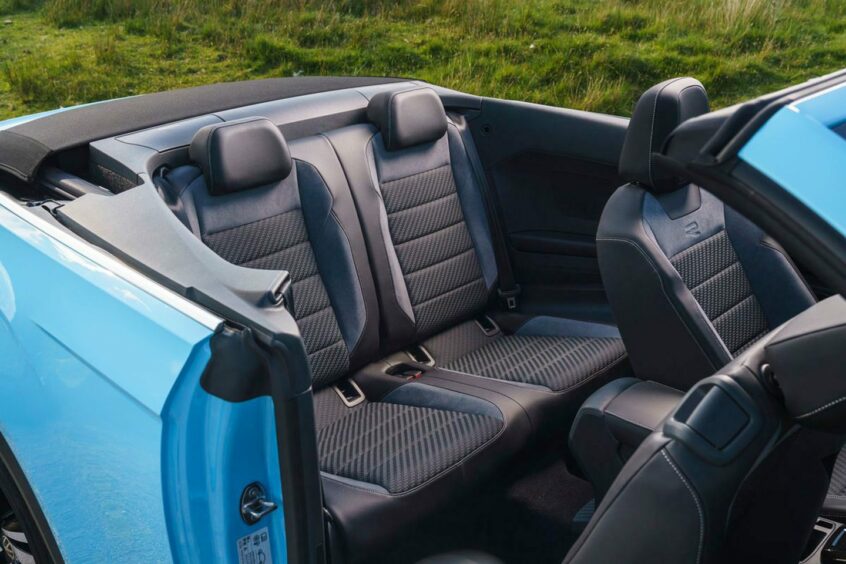
On the road, the car feels solid – I kept the roof down all the time I was in it – but there was quite a bit of ‘scuttle shake’ where the lack of a fixed roof means you’re aware of the body flexing with the changing road surface.
In fairness, that’s a common phenomenon is most convertibles, but some are worse than others and I suspect the firmer sports suspension on the R-Line trim of the test car didn’t help.
It came with the £320 optional wind deflector behind the front seats which helps reduce buffeting but the downside is that it rules out the rear seats which are pretty small anyway and only really of use to junior adults.
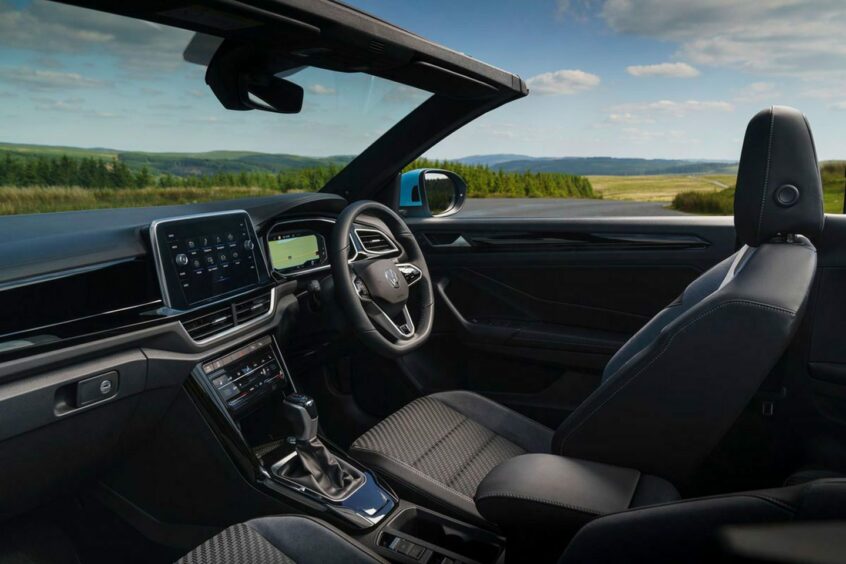
The latest model has seen some minor tweaks to the exterior look with new D-shaped LED daytime running lights and a revised front end with an updated grille and modified taillights.
There are more options to personalise your model with eight alloy wheel choices, two design packs and eight body colours, including the dramatic Teal Blue paintjob of the featured test car.
The finish is first-class with softer-touch materials replacing the previous hard surfaces so the interior feels more plush and upmarket
The interior is pretty much the same as the standard version and is in the customary clean VW style with a central eight-inch infotainment colour touchscreen which can be tricky to use when on the move.
The same goes for the touch-sensitive controls for the climate and I would have preferred proper buttons, which many designers are returning to in response to customer feedback.
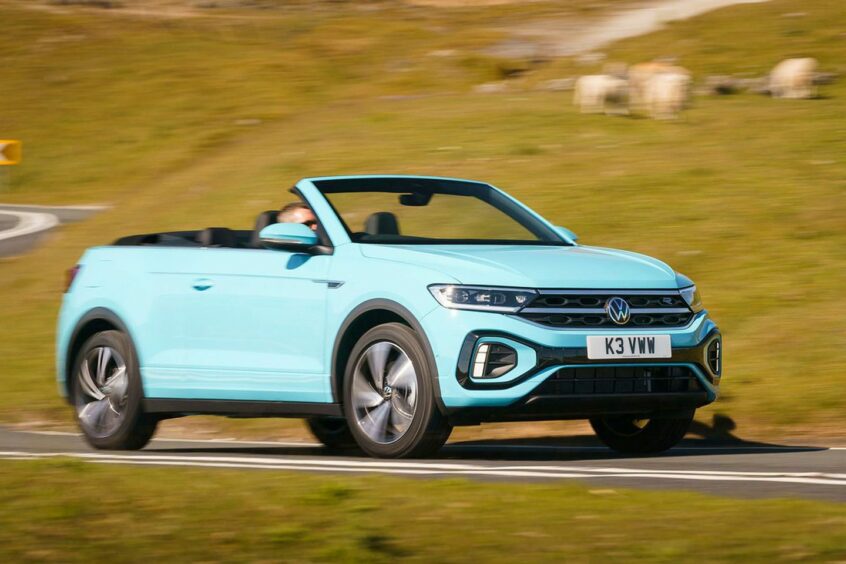
The finish is first-class with softer-touch materials replacing the previous hard surfaces so the interior feels more plush and upmarket.
Visibility is good, helped by the slightly raised driving position and the heated seats come with powered lumbar support and a backrest release to help passengers get in the back.
With the removal of the standard tailgate, the boot now has a small lid with a narrow opening but it is fairly deep, so it’s still quite accommodating and the rear seats fold if you need extra space.
Comprehensive standard equipment
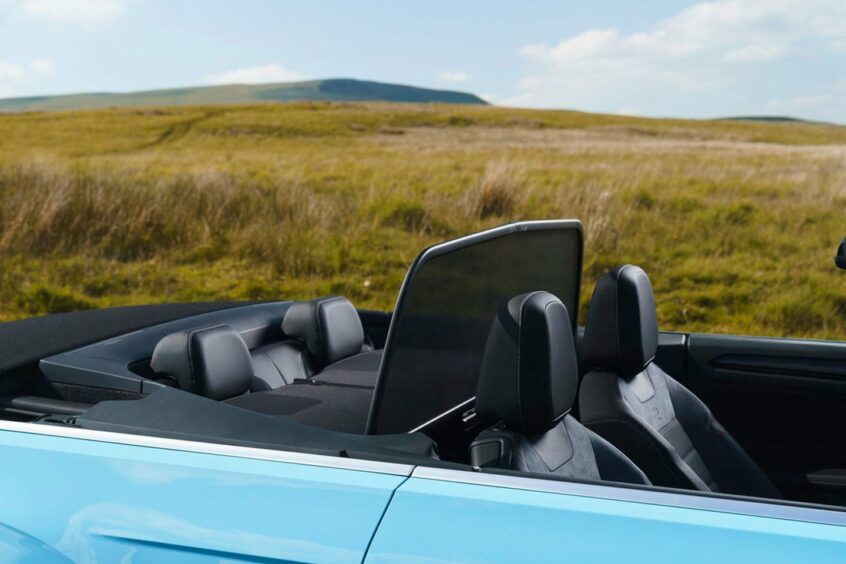
Prices start at just under £32,000 for the smaller engine version and for that you get a comprehensive list of standard equipment but if you fancied the car, it would be better to go for the full-fat version of the test car and get a decent engine and all the toys.
One thing is for sure. Get a T-Roc cabrio and you’ll have the only one in your street, probably your town, even your county and I’ve yet to see one in Scotland.
In its home market of Germany around a quarter of all T-Rocs were cabrios while in the UK that figure drops to just 5% – or around a thousand cars.
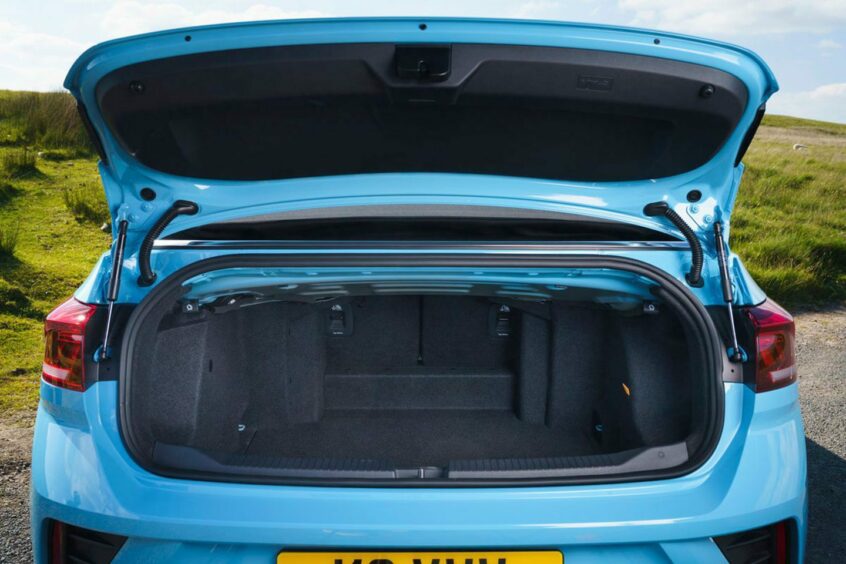
The Facts
Model: Volkswagen T-Roc Cabrio R-Line
Price: £37,255 (£40,225 as tested)
0-62 mph: 9.4 seconds
Top speed: 127mph
Economy: 44mpg combined
CO2 emissions: 144 g/km
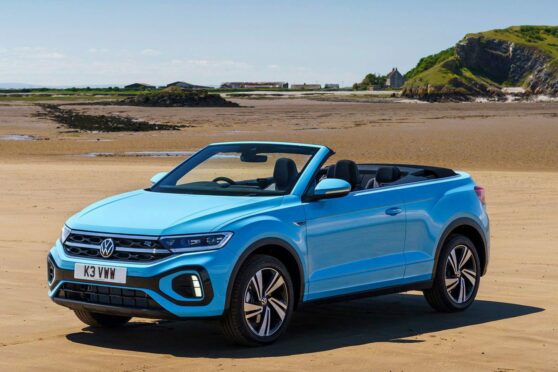
Conversation